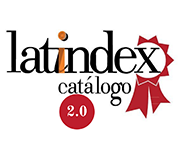Entrepreneurial system based on knowledge networks for business sustainability: towards a theoretical-conceptual approach
DOI:
https://doi.org/10.20983/novarua.2023.27.1Keywords:
business sustainability, knowledge networks, entrepreneurshipAbstract
The aim of this paper is to explicitly examine the relationship between business sustainability, knowledge networks and entrepreneurship as a holistic set of connections of a complex nature. For this purpose, a theoretical-conceptual framework called "Entrepreneurial system based on knowledge networks for business sustainability" is proposed. Its justification resides in the inexistence of an outline aimed at identifying the aspects that intervene in entrepreneurial behavior from the reticular, cognitive, and sustainable points of view. The construction of the proposal is carried out through an exploratory and documentary investigation. The results point to the feasibility of the approach since it is possible to theoretically relate sustainability and knowledge networks through the figure of the entrepreneur.
References
Arana, B., Ordoñez, B., Tapia, N., y Pacheco, A. (2020). Estudio de la estrategia feedback a través de la medición del rendimiento laboral en las PYMES. Digital Publisher CEIT, 5(6-1), 360-376. DOI: https://doi.org/10.33386/593dp.2020.6.434.
Arancibia, J. (2021). El fomento de la Cultura Emprendedora en el proceso de formación universitaria dentro del Ecosistema Emprendedor. Ciencia Latina, 5(2). DOI: https://doi.org/10.37811/cl_rcm.v5i2.391.
Arza, V., Marín, A., López, E., y Stubrin, L. (2018). Redes de conocimiento asociadas a la producción de recursos naturales en América Latina: análisis comparativo. Revista de la CEPAL, 125, 99-126. Recuperado de: https://repositorio.cepal.org/items/3c98e96c-c1e9-48b7-84ea-54a833e3dfa3.
Audretsch, D. y Fiedler, A. (2022). Power and entrepreneurship. Small Business Economics, 60, 1573-1592. DOI: https://doi.org/10.1007/s11187-022-00660-3.
Aya, L. (2020). Aportes de los sistemas y redes complejas para la transformación social. Logos Ciencia & Tecnología, 12(1), 204-216. Recuperado de: http://www.scielo.org.co/scielo.php?pid=S2422-42002020000100204&script=sci_arttext.
Aydin, D., Araz, B., y Ozer, I. (2018). Adventurous and charismatic spirits: Entrepreneurs of Veblen and Schumpeter. Economics Letters, 169, 24-26. DOI: https://doi.org/10.1016/j.econlet.2018.05.004.
Bedford, D., y Sánchez, T. (2021). Knowledge Networks (Working Methods for Knowledge Management). Emerald Publishing Limited. DOI: https://doi.org/10.1108/978-1-83982-948-220211003.
Callegari, B., & Nybakk, E. (2022). Schumpeterian theory and research on forestry innovation and entrepreneurship: The state of the art, issues, and an agenda. Forest Policy and Economics, 138. DOI: https://doi.org/10.1016/j.forpol.2022.102720.
Canales, R. A. (2018). Redes de conocimiento y desarrollo regional en el marco de la incubación de empresas universitarias. El caso de la UAEMex. Asociación Nacional de Universidad e Instituciones de Educación Superior.
Canales, R. A., Román, Y., y Ovando, W. (2017). Emprendimiento de la población joven en México. Una perspectiva crítica. Entreciencias. Diálogos en la Sociedad del Conocimiento, 5(12), 1-26. DOI: https://doi.org/10.21933/J.EDSC.2017.12.211.
Canales, R.A., Ovando W., y Estrada E. (2020). Redes de conocimiento en el contexto de microempresas familiares en el Estado de México: un caso de estudio. En Cadena, C. y Mejía, P. (Coords.), Estado de México: instituciones, políticas públicas y actividad productiva (pp. 305-327). El Colegio Mexiquense, A.C.
Canales, R., y Montiel, O. (2023). True Entrepreneur versus False Entrepreneur: Implications for Family Business. En Montiel, O., Tomaselli, S. y Soto, A. (Eds.), Family Business Debates: Multidimensional perspectives across countries, continents and geo-political frontiers (pp. 327-350). Emerald Publishing. DOI: https://doi.org/10.1108/978-1-80117-666-820221020.
Cardona, H. (2020). Tipos de confianza predominantes en las actuales prácticas de producción científica y tecnológica: implicaciones en el fenómeno de la gobernanza del conocimiento. Woriking Paper. Recuperado de: http://hdl.handle.net/11159/427444.
Chavance, B. (2018). La economía institucional. Fondo de Cultura Económica.
Chungyalpa, W. (2021). Understanding Business Sustainability: The What, the Why, and the How of Sustainable Business Practices. Indian Journal of Sustainable Development. 5(12), 24-37. Recuperado de: http://publishingindia.com/ijsd/.
Cortez, L. (2021). Competencias directivas y confianza en una empresa privada de servicios. Industrial Data, 24(1), 121-129. DOI: https://doi.org/10.15381/idata.v24i1.17700.
Correa, E. (2018). Redes de colaboración en investigación e intercambio de conocimiento científico. Revista Pan-Amazónica de Saúde, 9(4). DOI: https://doi.org/10.5123/S2176-62232018000400001.
Damle, Y. (2019). Apuntes sobre la teoría del cambio social. Revista Mexicana De Ciencias Políticas y Sociales, 33(127). DOI: https://doi.org/10.22201/fcpys.2448492xe.1987.127.71811.
Emami, F. (2021). Schumpeter’s Theory of Economic Development: A Study of the Creative Destruction and Entrepreneurship Effects on the Economic Growth. Journal of Insurance and Financial Management, 4(3), 65-81. Recuperado de: https://papers.ssrn.com/sol3/papers.cfm?abstract_id=3153744.
Fonseca, G. (2020). Gestión del conocimiento y conectividad: columna vertebral en tiempos turbulentos. Inquietud Empresarial, 20(1), 1-4. DOI: https://doi.org/10.19053/01211048.11206.
Fernandes, S., y Mueller, A. (2019). The concept of entrepreneur of Schumpeter in comparison to Kirzner. MISES: Interdisciplinary Journal of Philosophy Law and Economics, 7(3), 1-31. DOI: https://doi.org/10.30800/mises.2019.v7.1223.
García, C. (2019). Inteligencias y sabidurías organizacionales: Redes de conocimiento en torno al aprendizaje de la complejidad. Psicogente, 22(41), 1-26. DOI: https://doi.org/10.17081/psico.22.41.330.
García, M., Zerón, M., y Sánchez, Y. (2018). Factores de entorno determinantes del emprendimiento en México. Entramado, 14(1), 88-103. Recuperado de: http://www.scielo.org.co/scielo.php?pid=S1900-38032018000100088&script=sci_arttext.
Godínez, J., y Canales, R. (2018). Desarrollo y emprendimiento universitario: la relevancia de las interrelaciones, una aproximación empírica. Gestión y Estrategia, 54, 53-69. DOI: https://doi.org/10.24275/uam/azc/dcsh/gye/2018n54/Godinez.
González, A., Sánchez, Y., y Limón, M. (2021). Diferencias en los rasgos de la personalidad de los emprendedores por necesidad y oportunidad. Lúmina, 22(2). DOI: https://doi.org/10.30554/lumina.v22.n2.4074.2021.
Guerrero, M., y Santamaría, C. (2020). Ecosistema y actividad emprendedora en México: un análisis exploratorio. Perfiles latinoamericanos, 28(55). DOI: https://doi.org/10.18504/pl2855-009-2020.
Guerrero, D. (2021). El impacto de la capacidad de absorción potencial del conocimiento sobre la innovación en marketing. Contaduría y Administración, 66(2),1-15. DOI: https://doi.org/10.22201/fca.24488410e.2021.2294.
Kaufmann, W., Hooghiemstra, R., y Feeney, M. (2018). Formal institutions, informal institutions, and red tape: A comparative study. Public Administration, 96(2), 386-403. DOI: https://doi.org/10.1111/padm.12397.
Kusumawijaya, I. (2019). The prediction of need for achievement to generate entrepreneurial intention: a locus of Control Mediation. International Review of Management and Marketing, 9(4), 54-62. DOI: https://doi.org/10.32479/irmm.8330.
McClelland, D. C. (1961). The achieving society. D Van Nostrand Company. DOI: https://doi.org/10.1037/14359-000.
Manzano, L., De Luna, D., Moctezuma, J., y Luna, S. (2020). Intención emprendedora entre el idealismo y la obligatoriedad. Revista El Colegio de San Luis, 10(21), 5-30. DOI: http://doi.org/10.21696/rcsl102120201227.
Marulanda, V., Montoya, I., y Vélez, J. (2019). El individuo y sus motivaciones en el proceso emprendedor. Universidad & Empresa, 21(36), 149-174. Recuperado de: http://www.scielo.org.co/scielo.php?pid=S0124-46392019000100149&script=sci_arttext.
Marín, F., Senior, A., Castro, M., González, A., y Chacín, A. (2021) Knowledge Network for Sustainable Local Development. Sustainability, 13(1124), 1-16. DOI: https://doi.org/ 10.3390/su13031124.
Marín, P., y Cuartas, C. (2022). Ecosistemas de emprendimiento: hacia una reflexión práctica y conceptual. Revista Universidad & Empresa, 24(43), 1-38. DOI: https://doi.org/10.12804/revistas.urosario.edu.co/empresa/a.12044.
Messina, M. (2018). Manual didáctico Emprendedurismo. Universidad de la República. Comisión Sectorial de Enseñanza.
Meuer, J., Koelbel, J., y Hoffmann, V. (2020). On the Nature of Corporate Sustainability. Organization & Environment, 33(3), 319-341. DOI: https://doi.org/10.1177/1086026619850180.
Montiel, O., Canales R., y Gardea O. (2023). Entrepreneurial Iatrogenesis: An Exploratory Approach. European Journal of Family Business, 13, 113-125. DOI: https://doi.org/ 10.24310/ejfbejfb.v13i1.15751.
Morgan, H. (2022). Conducting a Qualitative Document Analysis. The Qualitative Report, 27(1), 64-77. DOI: https://doi.org/10.46743/2160-3715/2022.5044.
Nooteboom, B. (2022). Trust. En Ansell, C. y Torfing, J. (Eds.), Handbook on Theories of Governance (pp. 205-214). Edward Elgar Publishing.
Leick, B., y Gretzinger, S. (2020). Knowledge Sharing for Business Cluster and Business Network Contexts. Journal of Innovation Economics & Management, 33, 1-8. DOI: https://doi.org/10.3917/jie.033.0001.
López, J., De la Garza M., y Zavala, M. (2020). El liderazgo estratégico, la negociación y su influencia sobre la percepción del prestigio en pequeñas empresas. Innovar, 30(75), 57-70. Recuperado de: http://www.scielo.org.co/scielo.php?pid=S0121-50512020000100057&script=sci_arttext.
Opferkuch, K., Caeiro, S., Salome, R., y Ramos, T. (2022). Circular economy disclosure in corporate sustainability reports: The case of European companies in sustainability rankings. Sustainable Production and Consumption, 32, 436-456. DOI: https://doi.org/10.1016/j.spc.2022.05.003.
Ortigueira, L., y Stein, O. (2022). Factors that affect the negotiation process of SMES in trade shows. Journal of technology management & innovation, 17 (1), 15-26. http://dx.doi.org/10.4067/S0718-27242022000100015.
Ortiz, R. (2023). Factores para la promoción de Ecosistemas de Emprendimiento Social: Una aproximación empírica en Querétaro (México). Economía, Sociedad y Territorio, 23(71), 29-58. DOI: http://dx.doi.org/10.22136/est20231762.
Pérez, A., Torres, D., Torralba. A., y Salgado, F. (2020). Características y elementos del fenómeno emprendedor en Villavicencia, Colombia. Cuadernos Latinoamericanos de Administración, 16(30), 1-10. DOI: https://doi.org/10.18270/cuaderlam.v16i30.2782.
Petzold, M. (2019). La negociación distributiva y colaborativa como mecanismos alternos de resolución de conflictos. Revista Pensamiento Gerencial, 7, 5-9
Quevedo, L. (2019). Aproximación crítica a la teoría económica propuesta por Schumpeter. Investigación & Negocios, 12(20), 55-60. Recuperado de: https://www.recia.edu.co/index.php/rpg/article/view/799.
Ramírez, M., Texis M., Martínez J., y Saavedra R. (2022). Ecosistemas de emprendimiento de entidades federativas de México: una propuesta de medición y evaluación para orientar la política pública. Universidad Autónoma de Baja California/Benemérita Universidad Autónoma de Puebla/ Ediciones del Lirio.
Rodríguez, M. (2020). Ecosistema global del emprendedor desde una perspectiva financiera y tecnológica. Revista Mexicana de Economía y Finanzas, 15. DOI: https://doi.org/10.21919/remef.v15i0.p.
Saif, H., y Ghania, U. (2020). Need for Achievement as a Predictor of Entrepreneurial Behavior: The Mediating Role of Entrepreneurial Passion for Founding and Entrepreneurial Interest. International Review of Management and Marketing, 2020, 10(1), 40-53. DOI: https://doi.org/10.32479/irmm.8949.
Sarabia, A., y Delhumeau, S. (2019). Aproximación al concepto de ecosistema de emprendimiento. Ciencia Administrativa, 2, 1-5. Recuperado de: https://www.uv.mx/iiesca/files/2020/02/01CA201902.pdf.
Schweinsberg, M., Thau S., y Pillutla, M. (2022). Negotiation Impasses: Types, Causes, and Resolutions. Journal of Managment, 48(1), 49-76. DOI: https://doi.org/10.1177/01492063211021657.
Sobel, R., y Clemens, J. (2020). The Essential Joseph Schumpeter. Fraser Institute.
Terán, E., y Guerrero, A. (2020). Teorías del emprendimiento: revisión crítica de la literatura y sugerencias para futuras investigaciones. Revista Espacios, 41(7). DOI: https://doi.org/10.48082/espacios-a23v44n06.
Trantas, N. (2021). Could "degrowth" have the same fate as "sustainable development"? A discussion on passive revolution in the Anthropocene age. Journal of Political Ecology, 28(1), 224-245. DOI: https://doi.org/10.2458/jpe.2362.
Turnbull, L., Hütt M., Ioannides A., Kininmonth S., Poeppl R., Tockner K., Bracken L., Keesstra S., Liu L., Masselink R., y Parsons A. (2018). Connectivity and complex systems: learning from a multi-disciplinary perspective. Applied Network Science, 3(1), 1-49. DOI: https://doi.org/10.1007/s41109-018-0067-2.
Valdiviezo, M., y Utterman, R. (2020). Emprendimiento: factores esenciales para su constitución. Revista Venezolana de Gerencia, 25(90), 709-717. Recuperado de: https://www.redalyc.org/articulo.oa?id=29063559024.
Valenzuela, A., Gálvez, F., Contreras, D., y Parraguez, F. (2021). Análisis del perfil emprendedor para la formación de las nuevas generaciones de jóvenes chilenos. Información Tecnológica, 32(1), 209-216. DOI: http://dx.doi.org/10.4067/S0718-07642021000100209.
Vente, S., Kimming, A., Preece, A., y Cerutti, F. (2020). Increasing Negotiation Performance at the Edge of the Netwprk. En: Bassiliades, N., Chalkiadakis, G. y de Jonge, D. (Eds.), Multi-Agent Systems and Agreement Technologies (pp. 351-365). Springer. DOI: https://doi.org/10.1007/978-3-030-66412-1_22.
Vernaza, G., Medina, E., y Chamorro, J. (2020). Innovación, emprendimiento e investigación científica. Revista de Ciencias Sociales, 26(3), 163-174. Recuperado de: https://www.redalyc.org/articulo.oa?id=28063519006.
Weisman, D. (2023). A note on Schumpeter’s innovation hypothesis. Applied Economics Letters, 30(4), 496-500. DOI: https://doi.org/10.1080/13504851.2021.1994914.
Zapata, J., y Chávez, M. (2018). Las corrientes ortodoxa y heterodoxa del desarrollo: algunas nociones conceptuales. Opera, 22, 163-183. DOI: https://doi.org/10.18601/16578651.n22.09.
Zhang, L., y Chen, W. (2021). How do Innovation Network Structures Affect Knowledge Sharing? A Simulation Analysis of Complex Networks. Complexity, 2021, 1-21. DOI: https://doi.org/10.1155/2021/5107630.
Downloads
Published
Issue
Section
License
Copyright (c) 2023 Rosa Azalea Canales García, Oscar Javier Montiel Méndez

This work is licensed under a Creative Commons Attribution-NonCommercial-ShareAlike 4.0 International License.
All contents of the electronic edition of the journal are distributed under a license and distribution "Creative Commons Attribution-Noncommercial-ShareAlike 4.0 International" (CC-BY-NC-SA). You can see from here the informative version of the license.
Those authors/publications as having this journal agree to the following terms:
a) Is allowed and recommends authors / as disseminate their work via the Internet (p. eg .: institutional telematic files or on their website), which can produce interesting exchanges and increase appointments of the published work. (See The Effect of Open Access).












